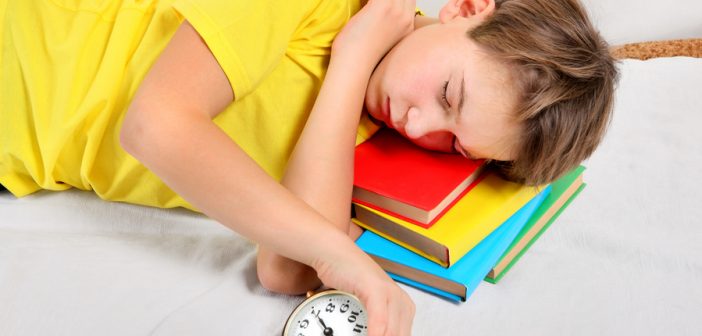Is your child having trouble sleeping? Here’s what you can do to help.
As a teacher I occasionally come across one or two students who are excessively sleepy during class, and no it’s not just during maths, and not because my lessons are boring…lol! When this is the case I always ask them a bit about their sleep pattern eg What time they go to bed? What they get up to at night before bed? Sometimes it’s really obvious that they are staying up way too late, or playing computer games right before bed or other activities that a most likely adverse to good restful sleep. However other times they are going to bed at a reasonable hour but they just don’t seem to sleep well.
It’s not rocket science to work out that bad sleep can impact a child’s performance, alertness and attention span during the day. It can be a really difficult issue to deal with as a parent because you can pull your hair out trying to do the right thing but nothing works.
If one of your children is having a sleeping problem you are not alone. Did you know that more than a third of school aged children may have a problem getting to sleep or having consistent sleep throughout the night.
There is a whole list of common sleeping problems that I had never heard of before researching this article. They include:
Common potential sleep problems
- Behavioural Sleep Problems – linked to inappropriate behaviours around the time the child goes to bed.
- Obstructive Sleep Apnoea Syndrome – a breathing problem during sleep.
- Restless Leg Syndrome – a movement disorder that cause strange feelings in the legs and interrupts sleep.
- Periodic Limb Movements – periodic jerkiness in any of the limbs during sleep
- Parasomnia – night terrors, sleep walking, sleep talking
- Nocturnal Seizures – much rarer but can occur as a child goes to sleep, during sleep or just as they wake up in the morning.
- Insomnia from anxiety or depression – finding it hard to switch off the brain from thinking and letting go of the day.
- Delayed Sleep Phase Syndrome – When the regular time of going to bad changes and the body finds it hard to adjust.
- Narcolepsy – a neurological sleep problem that results in excessive sleepines during the day but also includes sudden weakness in the muscles
- Excessive daytime sleepiness – narcolepsy without the muscle weakness
- Allergies – Allergens can cause itching, overheating and congestion.
If your child has had sleep problems for a while and it is impacting their and your daily life then the best advice is to see a GP that will listen and take you seriously. If they think it is necessary they will be able to refer you to a Paediatric Sleep Specialist for further assessment.
In saying that though, there are also a number of simple things you can do to create the best conditions to help your child to achieve a good night sleep.
These include:
- Consistent and sensible bedtime each night.
- No screens or tech devices, especially intense games, 1 hour before bedtime.
- Reduce their sugar intake after 3pm in the afternoon.
- Make sure they get enough exercise during the day (just because you child goes to school does not mean they are getting enough physical exercise every day, they could be spending their lunch hour in the computer lab).
- Breathable, low-allergen organic cotton pyjamas and sheets, a good matress and fresh pillow.
- Foods that combine protein and carbs, like oatmeal with milk, or toast with natural peanut butter, form amino acids that act like tryptophan, the chemical that makes you feel sleepy after a turkey dinner. Other foods that aid sleep include yogurt, cheese, bananas, poultry, eggs and tuna.
- Complete dark – put nightlights in the hallway and turn them off once they are asleep.
- Turn off your Wi-Fi at night when you go to bed. Electrical fields and devices can disrupt melatonin secretion.
- Some people swear by Melatonin supplements for helping their kids sleep but we do not recommend this or any other “remedies” without consulting your GP or other health professional first.

